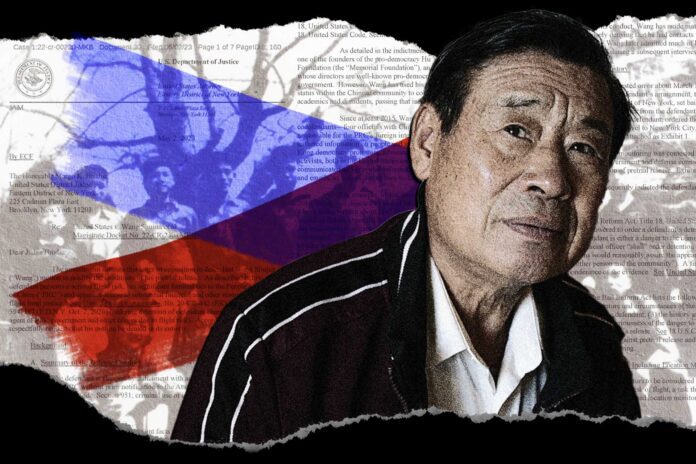In a dramatic start to the trial of Wang Shujun, a 76-year-old Chinese academic, US federal prosecutors in Brooklyn accused him of betraying US-based dissidents to the Chinese government. Wang, a naturalized US citizen, allegedly used his prominent position in New York communities advocating for democracy in China to gather intelligence on dissidents and relay it to the Ministry of State Security (MSS), China’s intelligence service.
Federal Prosecutors Accuse Wang Shujun of Espionage
Prosecutor Ellen Sise opened the trial by portraying Wang Shujun as a deceptive figure who pretended to support democracy while acting as an illegal agent for the Chinese government. “He portrayed himself as an academic, an activist, a pro-democracy advocate against the Chinese government,” Sise told the jurors. “In reality, the defendant Wang Shujun acted as an illegal agent of the Chinese government, spying on New Yorkers for years.”
Venture Capitalists Under Siege: US Tech Companies Face Chinese Espionage Threats
Wang’s defense, led by lawyer Zachary Margulis-Ohnuma, countered these claims by arguing that Wang’s interactions with MSS officials were part of his efforts to promote democracy in China, not espionage.
Margulis-Ohnuma emphasized that Wang had always been transparent about his contacts with Chinese officials, even taking photos with them, suggesting he had nothing to hide. “He’s devoted his life to promoting a free and democratic China through peaceful means,” Margulis-Ohnuma stated. “It was for democracy – it was not as an agent of the Chinese government.”
The Spy Balloon Incident: How a Floating Threat Exposed U.S.-China Espionage Tensions
The Charges and Allegations
Wang Shujun, who emigrated to the United States in 1994, was arrested in March 2022 and pleaded not guilty to four counts, including acting as a foreign agent without notifying the US Attorney General and lying to US authorities. The prosecution alleges that Wang’s espionage activities spanned from 2005 to 2022, during which time MSS officials directed him to target various groups, including Hong Kong pro-democracy activists, Taiwanese independence advocates, and Uyghur and Tibetan activists.
Sanctions Clash: US Lawmakers Push to Ban Chinese Battery Giants Linked to Uyghur Forced Labor
The trial highlights the broader issue of “transnational repression,” a term used by the US Department of Justice to describe the surveillance, intimidation, and sometimes violent actions taken by foreign governments against their dissidents abroad. This crackdown on foreign interference has intensified in recent years, with other high-profile cases, such as the conviction of a former New York City police sergeant for acting as an illegal Chinese agent to intimidate a US-based fugitive.
Wang’s Defense and the Broader Implications
Wang’s defense argues that his interactions with the MSS were part of his broader efforts to bring about social change and democracy in China. According to Margulis-Ohnuma, Wang Shujun believed that engaging with Chinese officials could garner support for the pro-democracy movement.
Leticia Zheng Exposed in Sinister 7-Year Chinese Espionage Operation at the University of Florida
The defense’s narrative is that Wang’s transparency about these interactions, including his willingness to be photographed with MSS officers, contradicts the notion that he was secretly acting as an agent of the Chinese government.
The trial of Wang Shujun is set against a backdrop of increasing tension between the US and China over issues of human rights and foreign interference. The US government’s recent focus on combating transnational repression underscores the seriousness with which it views these cases. Wang, if convicted, faces up to 25 years in prison, reflecting the severe penalties associated with espionage and acting as an unregistered foreign agent.
US Circuit Judge Denny Chin, who typically presides over appeals, is overseeing the trial, which began with jury selection on Monday. The case also involves charges against four Chinese intelligence officers accused of being Wang’s handlers, though these individuals remain at large in China.
A Complex Case with Far-Reaching Consequences
The trial of Wang Shujun is emblematic of the broader struggle between the US and China over human rights and the treatment of dissidents. It also highlights the complex nature of international espionage and the fine line between advocacy and espionage. As the trial unfolds, it will provide a window into the methods and extent of Chinese intelligence operations in the US and the lengths to which the US government will go to protect its citizens and residents from foreign interference.



